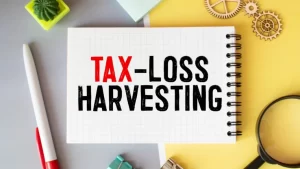
Smart Investment Tips for Millennials – How to Build Wealth in Your 30s
If you’re hoping to build net worth in your 30s, investing should be a major focus. Investing means buying things you expect to go up in value, such as stocks or exchange-traded funds (ETFs).
First, decide what you want your investments to help you achieve, and how much loss you are willing to endure along the way (your ‘risk tolerance’). Those two pieces of information will help you to settle on an investment goal and a target mix of investment types.
Invest in Your Future
Sometimes investing in yourself will position you to make more money: it could include putting money aside towards your own retirement funds, or saving and investing for that purpose. Other funds could be earmarked for doing outreach and applying for jobs, including negotiating raises or taking jobs that are better fitted to your skills and experience than those previously held. (After all, understanding your own risk level should be part of your investing plan.) Diversification across asset types – portfolio risk management aimed at taking advantage of long-term growth, shielding against market swings – is another stopgap. Finally, sustainable investing can help you align your financial goals with your values (potentially enhancing your investing outcomes).
Pay Off Debt
Freeing up your debt will open up pockets of cash to put towards investing and other financial objectives – a crucial starting point for all investors. Long-term assets, such as stocks, could lead you to the wealth you want in the long run. Savvy investors could rely on the historical returns of the stock market to get the most wealth-building potential in the long term, by building wealth. A good way to diversify your investments is to reduce your risk by allocating your dollars across different sectors and various asset classes with the potential for growth.
Invest in a Retirement Plan
Saving for your golden years by investing in your retirement plan is part of building wealth, and if your employer offers matching funds, that can increase savings substantially. Don’t take on too many risks in your investments, which can endanger your long-term financial security. Save more and spend less to increase income and reduce risk. So, one way to maximise the United Nations’ ideal of ‘a life of dignity’ is to ensure a diversified portfolio that will see you through any market busts, and allow you to grow your wealth again afterwards. If you do that, your investment decisions will be smoother in bear markets in the future, and your wealth will still accumulate.
Invest in Real Estate
Real estate in fact is an investment with great potential for yielding income and appreciation in the long term. However, it could be risky not understanding what you are getting into. It is therefore important you understand the risks and benefits of investing in real estate. Compounding is one of the most powerful investing principles in use today, as it harnesses the power of time to magnify your investments exponentially. If you start early and stay consistent, you can fully harness the power of this investing principle, and watch your assets grow in value exponentially. Investing for your long-term financial well-being can be intimidating, especially for the newly invested. Review how the market works, avoid putting all your eggs in one basket by diversifying, dollar-cost average to stay invested through the market highs and lows, and take advantage of retirement accounts with added investment options like IRAs or 401(k)s.
Reduce Your Expenses
Among the easiest and most certain routes to wealth is saving a portion of your income. To do so, start by charting your expenses and creating a budget – using 50 per cent for needs, 30 per cent for wants and 20 per cent for savings/debt payments should help maximise paychecks for longer-term wealth. Given that you – wanting to be a millennial investor of all things – are probably ready to take on some extra meaning in your investing life, why not think about sustainable investing – you know, companies that put environmental, social and governance criteria into their products and services (and might actually yield higher returns than ‘normal’ ones anyway)?
Increase Your Income
Developing healthy financial habits and realistic financial goals take centre stage if you want to create wealth in your 30s, 40s, 50s and above. Don’t forget to contribute the maximums to retirement accounts you can. In taxable retirement accounts like your company’s 401(k)s or IRAs, you should put away the maximum allowable, and make sure you take advantage of the maximum matching contributions from your employer if available. Though its ups and downs, investing in the stock market is one of the best ways to accumulate wealth. One needs to diversify their portfolio to spread out the risks and also to maximise the growth potential of different sectors and assets.



